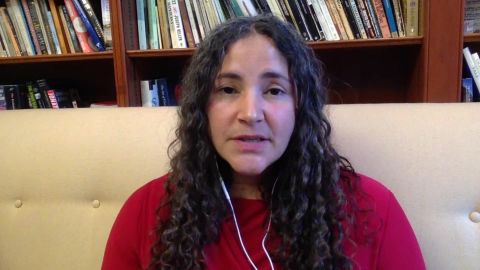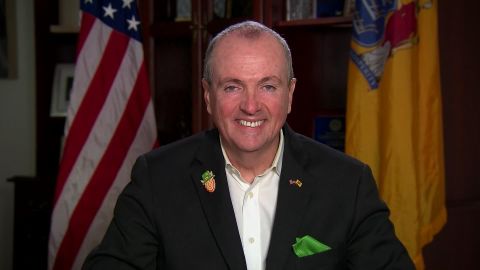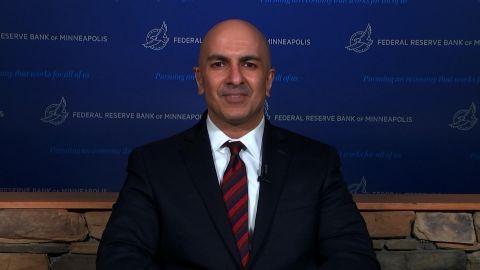Read Transcript EXPAND
CHRISTIANE AMANPOUR: Well, I mean, this is just such a roller coaster and health is one thing but people are losing the shirts off their backs and they are really, really worried. To your mind, are governors, central banks and ministers saying and doing what’s necessary now?
NEEL KASHKARI, PRESIDENT, FEDERAL RESERVE BANK OF MINNEAPOLIS: I think we are beginning to. And many governors across the country, I heard Governor Murphy of New Jersey, our Governor Walz here in Minnesota are taking this very seriously, they’re closing down shops, they’re closing down restaurants and schools. Those are prudent measures to try to slow the spread of the virus. But, of course, there are economic costs with doing so. Many businesses are going to be under tremendous strain and probably laying off many of their workers. And so, this is quickly going to become an economic crisis for America. The question is, are we going to follow the path of South Korea and Japan which seem like they have done a good job so far managing the crisis without shutting down their economies or are we going to head to Italy and Spain where we would have to shut down our economy effectively for the foreseeable future? That could lead to a very, very deep recession. And so, it is very important that governors and national policymakers are stepping in to provide support to businesses and the workers. They’re going to need the help.
AMANPOUR: So, to your mind, why is it that those countries in Asia you mentioned, Japan, South Korea, have managed to get a grip on this and have not closed down their economies? Why is the West in such dire, dire threat here?
KASHKARI: You know, it’s a good question. People say that the Asian countries had more experience with avian flu and prior episodes of different types of diseases. And so, perhaps they were better equipped to scale up the responses quickly. I actually don’t have a good answer to that. One of the key questions is, you know, China appears to be coming back online. Many of the multinational firms headquartered here in Minnesota have told us that they are ramping production back up in China. They are reopening their stores and factories. As China relaxes their economic controls, will the disease flare back up again? That’s an open question. I hope not. But it’s certainly possible. And so, one of the key questions that’s causing financial markets to be so volatile is no one knows. Do you have to keep the controls firmly locked down until we get a vaccine, which is a year or more away? This could be a very long crisis with profound economic implications. And unfortunately, there’s more that we don’t know than we do know at this point.
About This Episode EXPAND
New Jersey Governor Phil Murphy discusses efforts to limit the spread of COVID-19 in his state. Neel Kashkari, president of the Federal Reserve Bank of Minneapolis, explains the state of the U.S. economy and what the future will look like. Yale psychology professor Laurie Santos discusses how the pandemic could influence mental health across the country.
LEARN MORE


